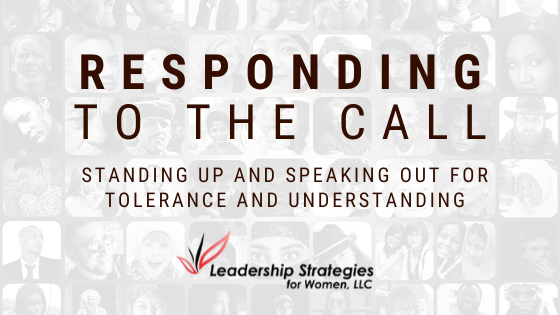
Responding to the Call: Standing Up and Speaking Out for Tolerance and Understanding


Successful people fascinate us. We are intrigued by how they live and how they achieve success. So, we study their habits and best practices. In studying the time management techniques of successful people like Oprah Winfrey, Warren Buffet and Albert Einstein, serial entrepreneur Michael Simmons discovered a common practice these high performers shared. He calls the practice, compound time.
Compound time refers to the large return that is generated over the long term from a small investment made now. If you want to focus your time so that you have maximum impact as a leader you can adopt the practice of compound time, too. According to Simmons, here are 6 practices you can adopt that will allow you to compound your time:
So, if you want to follow in the footsteps of high performers, slow down the pace of your busy life and begin to incorporate these 6 activities into your daily schedule and routine. You will see that over time, compound time will pay rich rewards.

Podcast: Play in new window | Download

I recently interviewed author Julia Mateer.
Julia just released her book, Lifegiving Leadership: A Woman’s Toolbox for Leading. She is also the co-founder of Generation Eve, an online community for women focusing on leadership, relationships, and parenting. She is also a wife, mother, and licensed mental health therapist.
During our interview, Julia shared about her background as a mental health therapist in a private practice for 10 years. Her main focus was working with at-risk adolescent girls. Over the years, she transitioned into becoming a full-time pastor. For the past four years, she has directed small groups at a large church in her area. She focuses on writing and maintaining her relationship with her husband of 33 years. She has three adult children and one grandchild.
Julia was inspired to write her book, Lifegiving Leadership, after finishing up her career as a therapist working with women facing clinical and spiritual issues. Largely influenced by her Christian faith, Julia observed her patients with a unique perspective. “One of the things that I noticed caused women the most heartbreak was relationships, particularly relationships with other women,” Julia said. She considers this a point that many Christian women struggle with and noticed many have trouble finding the support and encouragement they need.
The purpose of her book is to help these women the tools to develop healthy, lifegiving environments within the church setting so fellow women can find healthy relationships and opportunities to minister and impact people’s lives with the love of Jesus.
Tools to Help Women Lead
“For us to be able to lead others, we have to be able to lead ourselves,” Julia said. In her book, she covers several ways to accomplish this:
Leadership Goals and the Challenges They Bring
Julia says the main challenge facing women leaders is balancing family life with leadership goals. As she began developing as a leader, she said one of her biggest struggles was “being able to keep the integrity of my family while I was going to graduate school, while I was taking on more responsibility in ministry, and staying before the Lord to protect my heart and making sure I was following His leading, too.”
Another challenge facing women leaders is keeping themselves healthy physically, emotionally, and spiritually in high-stress roles.
Faith and Career Goals
Most of Julia’s goals are directly influenced by her relationship with Jesus Christ. She became a Christian at age 19. “My goal since then is to filter everything I do through Him,” she said. This impacts every area of her life, including her roles as a wife, mother, therapist, writer, pastor, and leader. It influences how she leads and how she respects others. It drives her to help others to grow and take their next steps. She wants to lead through the lifegiving love of Jesus, which inspires her to show integrity and honor as she fulfills her various responsibilities.
Generation Eve
Julia launched Generation Eve, or GenEve, a little over a year ago. The idea stemmed from a desire for an online community that could foster authentic conversations with women about important issues facing them every day: what it’s like to be a woman leader and the challenges that brings, issues in relationships, parenting issues, and various faith topics. The community includes people from all walks of life and many different ethnic backgrounds, each bringing her own perspective to the group. She wants the conversations to be inclusive and encouraging. To learn more about GenEve, visit www.generationeve.com. Julia is in the process of developing several new books about parenting and women’s issues. She also wants to begin hosting live events for her GenEve group.
You can connect with Julia by emailing julia@generationeve.com. To review Julia’s complete list of leadership tools, her book, Lifegiving Leadership: A Woman’s Toolbox for Leading, is available through online book retailers.
You can listen to the full interview on the Leadership Strategies for Women Podcast.

Podcast: Play in new window | Download
Ellie Nieves interviews Renee Weisman, Author of Why Hillary Lost: What Women Can Learn from the 2016 Election. During the interview, Renee shares that likability and competence are directly affected by gender, much more than experience or evidence of talent.